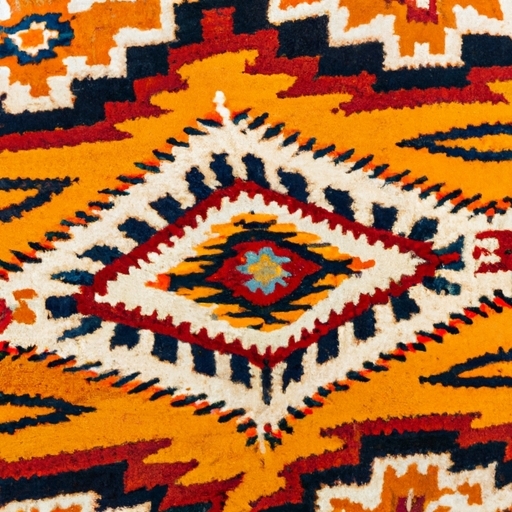
vintage handmade Southwestern rugs
History and cultural significance of southwestern rugs
Southwestern rugs have a rich history and cultural significance. These vintage handmade treasures hold stories woven into their intricate designs. The art of rug weaving has been passed down through generations, preserving the traditions and heritage of the Southwestern tribes.
The origin of Southwestern rugs can be traced back to Native American communities, particularly Navajo and Pueblo tribes. These tribes developed distinct weaving techniques using natural materials like wool from sheep they raised. They incorporated symbols and motifs that held spiritual meaning, reflecting their connection to nature and ancestral spirits.
Each rug tells a unique tale, capturing the essence of Southwestern culture. The vibrant colors used in these rugs represent the stunning landscapes found in this region – earthy browns, fiery oranges, deep blues, and vivid greens. This color palette showcases the natural beauty of the Southwest's deserts, mesas, canyons, and rivers.
The patterns found in Southwestern rugs are also significant. Geometric shapes such as diamonds, triangles, and squares dominate these designs. They symbolize harmony and balance within the universe while bringing aesthetic appeal to any space they adorn.
Vintage handmade Southwestern rugs are highly sought after by collectors worldwide due to their historical value and artistic uniqueness. Each piece is a testament to the craftsmanship and skill of Native American weavers who diligently created them with love and dedication.
In addition to being cherished collectibles, these rugs have become an integral part of interior design styles rooted in Southwestern aesthetics. Their bold patterns add character to modern homes while paying homage to the region's ancient traditions.
Preserving this cultural heritage is crucial for future generations. Organizations like Native American textile societies work tirelessly to promote awareness about Southwestern textiles' historical importance while supporting contemporary weavers' endeavors.
In conclusion, vintage handmade Southwestern rugs carry immense historical significance and cultural value. From their origins in Native American tribes to becoming coveted artifacts in today's world, these exquisite pieces embody centuries-old traditions and artistic mastery.